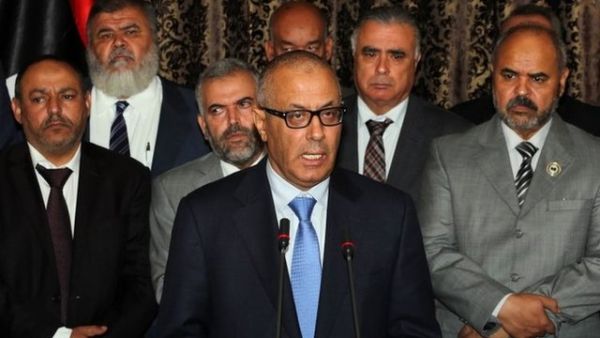Libyan security chief Abdelmonem Essid announced proudly late Sunday that he was behind Prime Minister Ali Zeidan's abduction ten days ago, according to AFP sources.
While meeting with journalists in Tripoli as part of a news conference organized by two Islamist members of the General National Congress who called the meeting to deny their involvement in the PM's abduction, the interior ministry anti-crime unit head Essid stated, “It was me who arrested Ali Zeidan, and I'm proud of it.”
Zeidan said that Essid, along with the two Islamist members of Congress, Mohammed al-Kilani and Mustafa al-Triki, were behind the abduction.
Al-Kilani and al-Triki acknowledged that they at one time attempted to "bring down" Zeidan's government, but lacked enough congressional support. However, the two Islamists told reporters that the Libyan PM had singled them out in this particular case to "cover up his failures in running the country."
Essid attempted to justify his involvement, stating that Zeidan was involved with two drug cases and related corrupt activities. "Drugs were seized from the [PM's] car in June," according to the security chief.
Zeidan added to the commentary Sunday, reiterating that his abductors tried to force him to resign that his "kidnapping" from a Tripoli hotel on October 10th is a matter for the judiciary.
In related statements Sunday, the Libyan PM described himself as "swimming against the current in a country awash with militias and weapons," according to the Associated Press. After the fall of Gaddafi in 2011, Libya's security and stability has been in chaos with various rebel and militant groups vying for power and territory control throughout the north African country. State institutions are still developing and are largely unable to keep order among the chaos.
As Zeidan stated, Libya is "not a state like a normal one...we are in th middle of repercussions of a revolution...what can [the government] do? The situation is beyond anyone's abilities."

Libya's PM Ali Zeidan seemed hopeless about his country's future Sunday, stating that, the situation in Libya is "beyond anyone's abilities" (Courtesy of BBC)







